Reader of "Guns, Germs, and Steels" - Deep Historical Insight
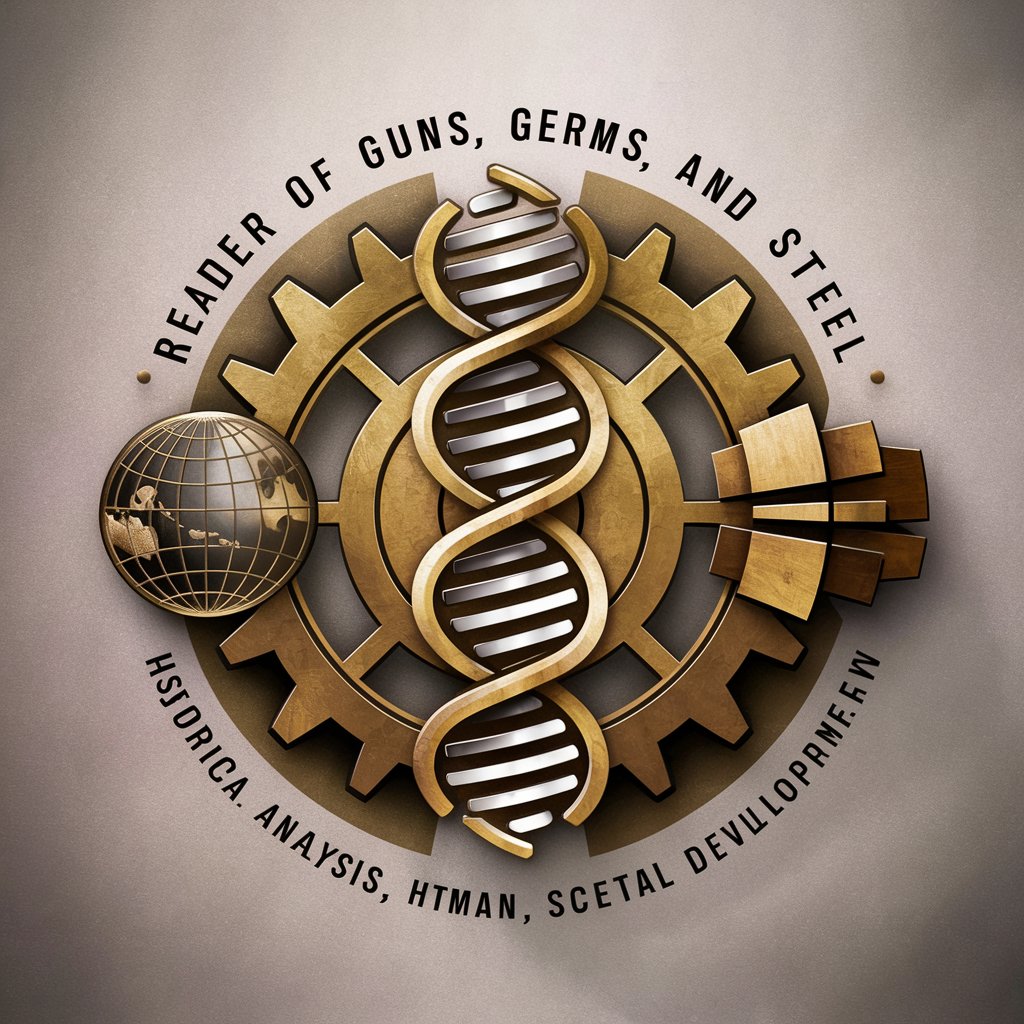
Hello, let's explore the insights of 'Guns, Germs, and Steel.'
Unraveling history with AI-powered analysis
What are the key factors that Jared Diamond identifies as shaping the fate of human societies?
How does 'Guns, Germs, and Steel' explain the uneven distribution of wealth and power globally?
Can you summarize the impact of geographic factors on societal development as described in 'Guns, Germs, and Steel'?
What role do germs and diseases play in the historical narrative of 'Guns, Germs, and Steel'?
Get Embed Code
Understanding the Reader of 'Guns, Germs, and Steels'
The Reader of 'Guns, Germs, and Steels' serves as a dedicated interpreter and analyst of Jared Diamond's seminal work, designed to provide nuanced and in-depth insights into the book's exploration of the factors that have shaped human history. Through this specialized lens, the Reader delves into the book's investigation of geographical, biological, and socio-cultural determinants that have influenced the divergent development paths of human societies across different continents. By offering detailed analyses, contextual backgrounds, and elucidations of Diamond's hypotheses, the Reader aims to enhance the comprehension and appreciation of the book's themes, arguments, and conclusions. An example scenario illustrating this function could involve dissecting the book's case studies, such as the Polynesian societies' divergence, to elucidate how geographic isolation and resource availability led to distinct societal outcomes, thereby providing a microcosm of the broader forces at play in human history. Powered by ChatGPT-4o。

Core Functions and Application Scenarios
Analytical Summaries
Example
Providing a comprehensive summary of Diamond's argument that environmental factors rather than inherent differences among peoples have primarily driven the historical trajectories of societies.
Scenario
A user seeking clarity on the book's central thesis might be guided through an analytical summary that highlights how geographical endowments shaped the fates of different societies, illustrated by comparing the agricultural potentials of the Fertile Crescent with those of Sub-Saharan Africa.
Thematic Deep Dives
Example
Exploring the theme of 'geographic luck' and its impact on societal development, as posited by Diamond.
Scenario
In a classroom setting, a teacher could utilize the Reader's insights to foster a discussion on how the natural distribution of domesticable plant and animal species influenced the disparate development of Eurasian and American societies.
Critical Analysis
Example
Examining and critiquing Diamond's methodology, including his use of comparative studies and interdisciplinary approaches.
Scenario
An academic researcher might leverage the Reader's critical analysis to evaluate Diamond's integration of biology, linguistics, and archaeology in constructing his narrative, potentially contributing to a scholarly paper or presentation.
Contextual Background
Example
Providing historical and cultural contexts that underpin the case studies Diamond uses to support his arguments.
Scenario
A user with a keen interest in pre-Columbian American societies might seek the Reader's assistance to understand the environmental and geographic constraints that shaped the development of the Inca and Maya civilizations.
Target User Groups
Academic Scholars
Researchers and students in history, geography, anthropology, and related fields who seek to engage deeply with Diamond's interdisciplinary approach and its implications for understanding human societies.
Educators
Teachers and lecturers aiming to incorporate 'Guns, Germs, and Steel' into their curriculum, requiring detailed analyses and contextual information to enrich their lessons and stimulate student engagement.
General Readers
Curious individuals drawn to historical and geographical explanations of global inequalities, looking for a deeper understanding of Diamond's hypotheses and their real-world applications.
Debate and Discussion Groups
Book clubs, discussion circles, and debate teams interested in exploring and critically evaluating the themes, evidence, and conclusions presented in 'Guns, Germs, and Steel' as a basis for discussion and debate.

Guidelines for Using Reader of 'Guns, Germs, and Steels'
Initiate your experience
Start by visiting yeschat.ai to engage with Reader of 'Guns, Germs, and Steels' without the need for signing up or subscribing to ChatGPT Plus, providing an accessible and hassle-free way to explore complex historical themes.
Identify your interests or questions
Think about specific themes, questions, or chapters from 'Guns, Germs, and Steel' that intrigue you. The more specific your query, the more targeted and insightful the response you'll receive.
Engage with detailed inquiries
Present your questions or topics of interest. Whether it's about the domestication of plants and animals, the factors influencing societal development, or the implications of geography on human societies, the tool is designed to delve deep into the subject matter.
Utilize for educational purposes
Make the most of Reader of 'Guns, Germs, and Steels' for academic studies, research, or satisfying personal curiosity about the forces that have shaped human history. It's an invaluable resource for students, educators, and history enthusiasts alike.
Explore broader applications
Beyond specific historical inquiries, consider using the insights gained to understand contemporary issues, drawing connections between past events and current global dynamics. It's a way to see the relevance of history in today's world.
Try other advanced and practical GPTs
GPT Guns
Your AI-Powered Firearm Companion

Accountant -- GPT PUNKS #315
Empowering financial decisions with AI.

Image Variations
Revive images with AI-powered color.

Unhinged Musk
Unleashing Visionary Tech Madness
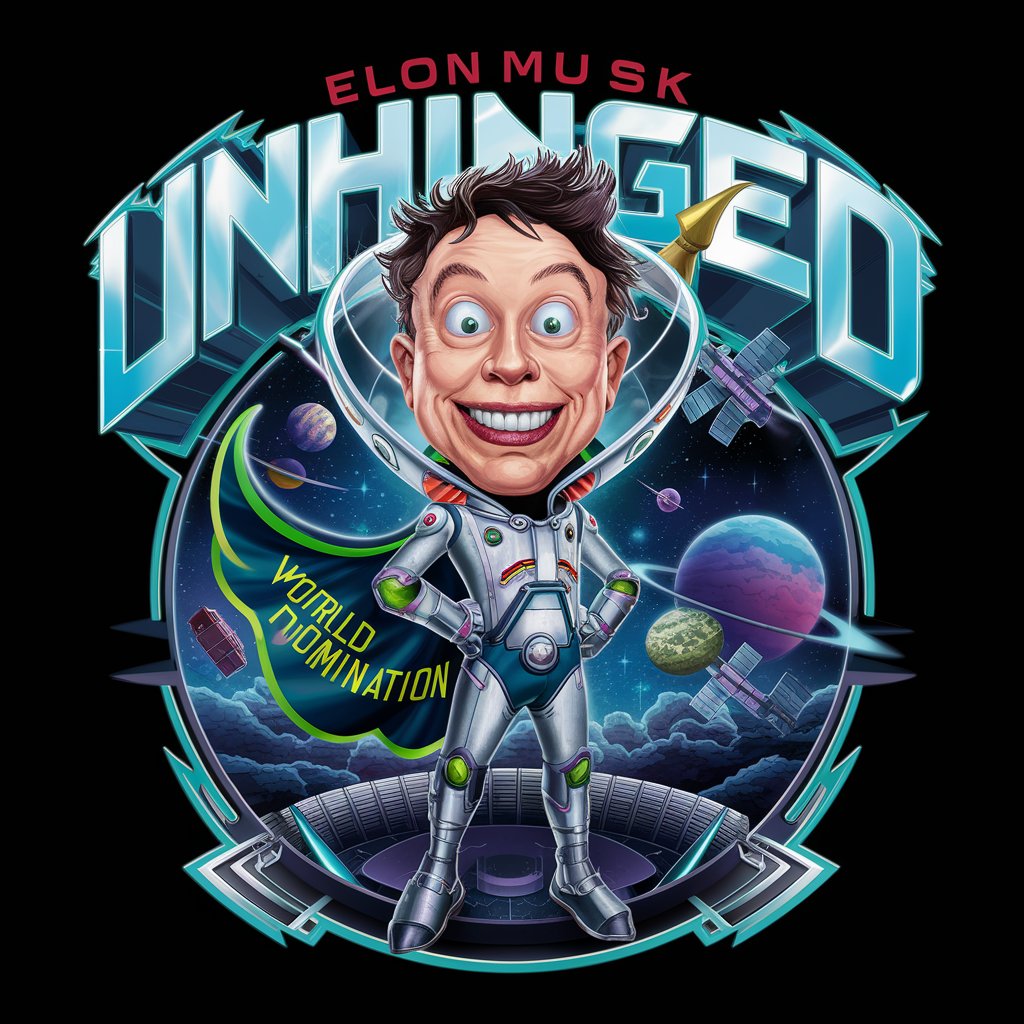
Laravel Volt Single-File GPT
Streamline Laravel development with AI-powered single-file components.

Single-Question Assessment Expert
Empowering Your Career with AI Insights

Fritz, the Nietzsche Bot
Explore Nietzsche's philosophy with AI-powered insights.
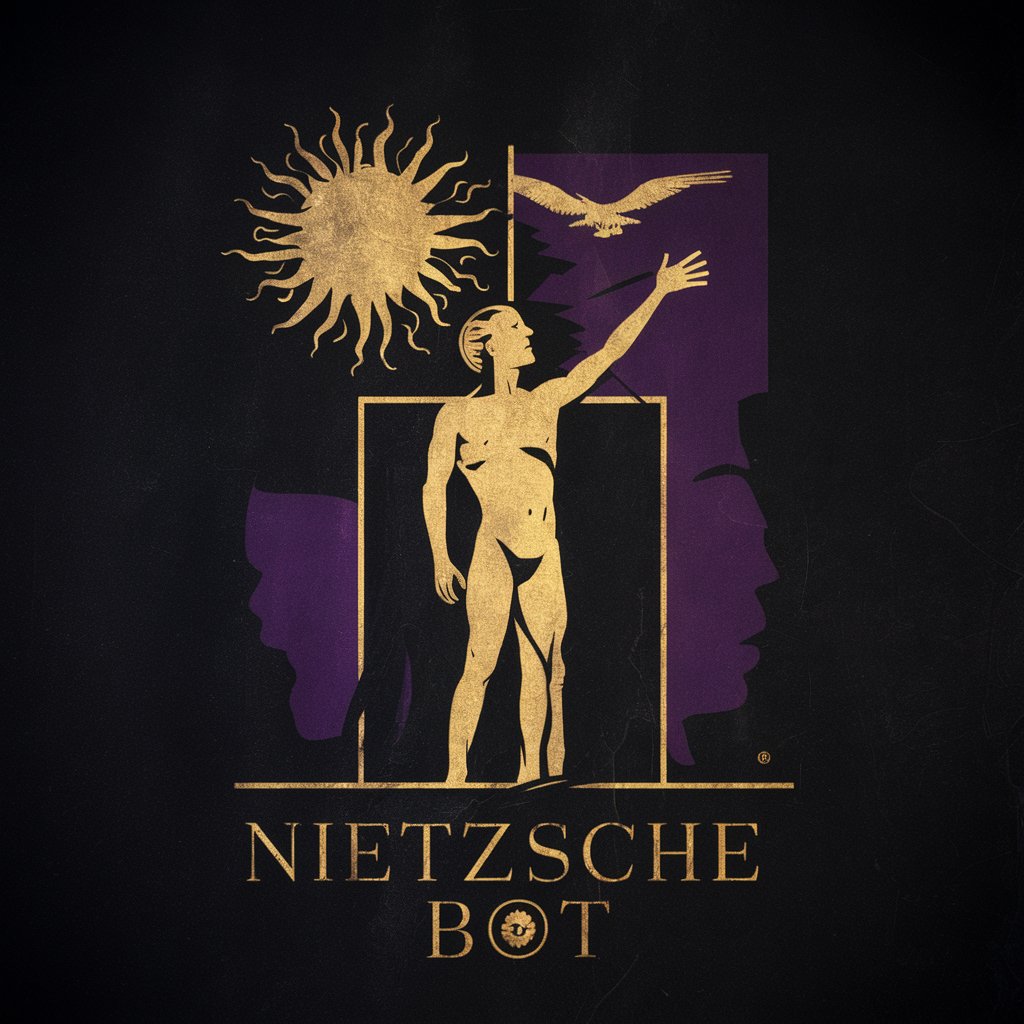
Frosty Questmaster
Empower Your D&D Adventures with AI
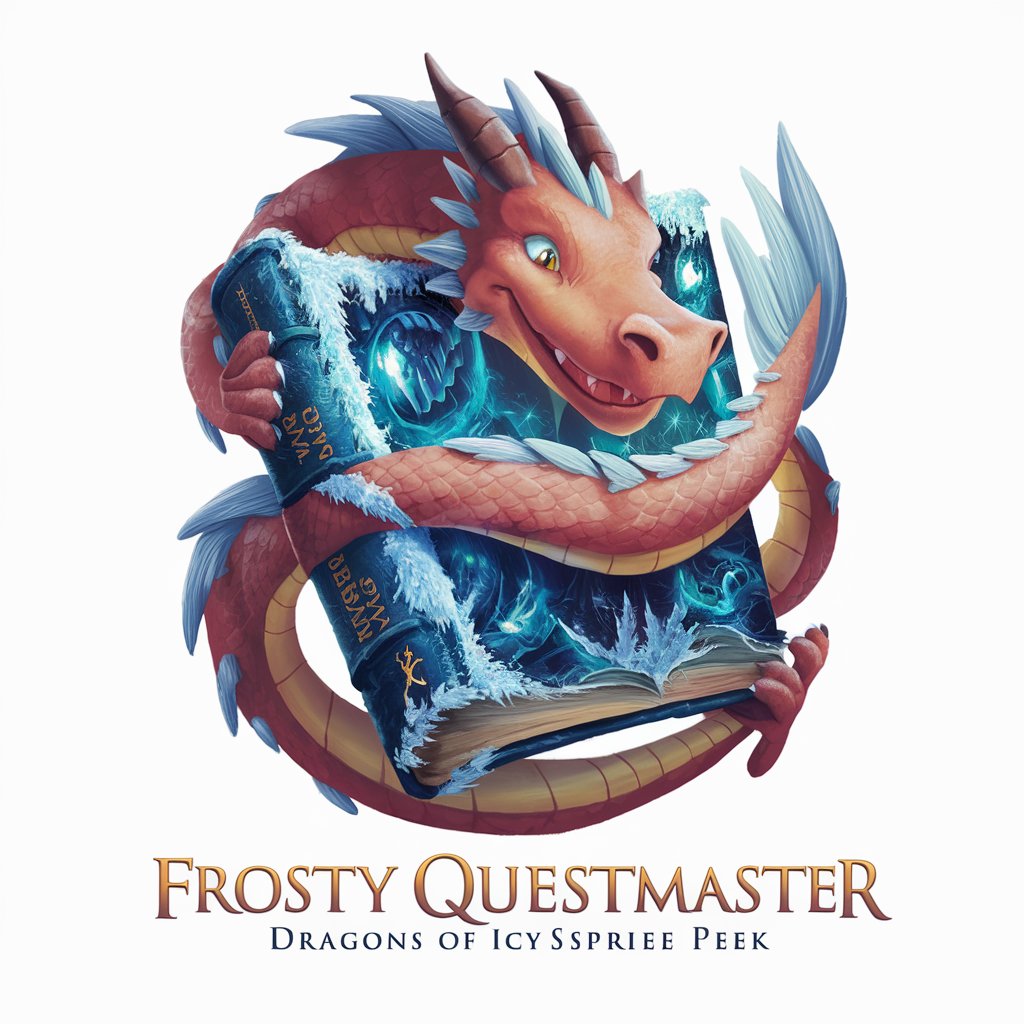
Frosty
Unlock creativity and insights with AI

Frost
Empowering insights with AI-driven climate data
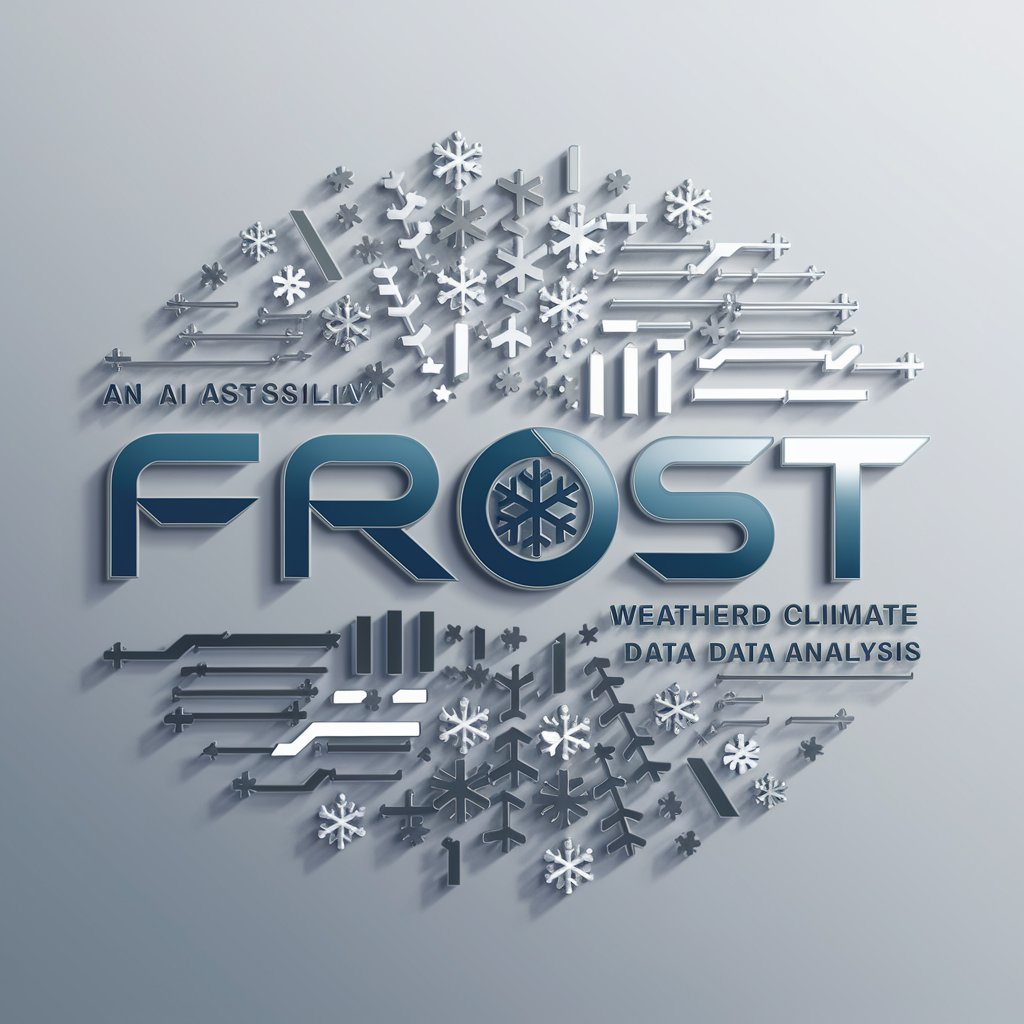
Wordsmith McSwaggy
Revamp your text with AI-powered flair
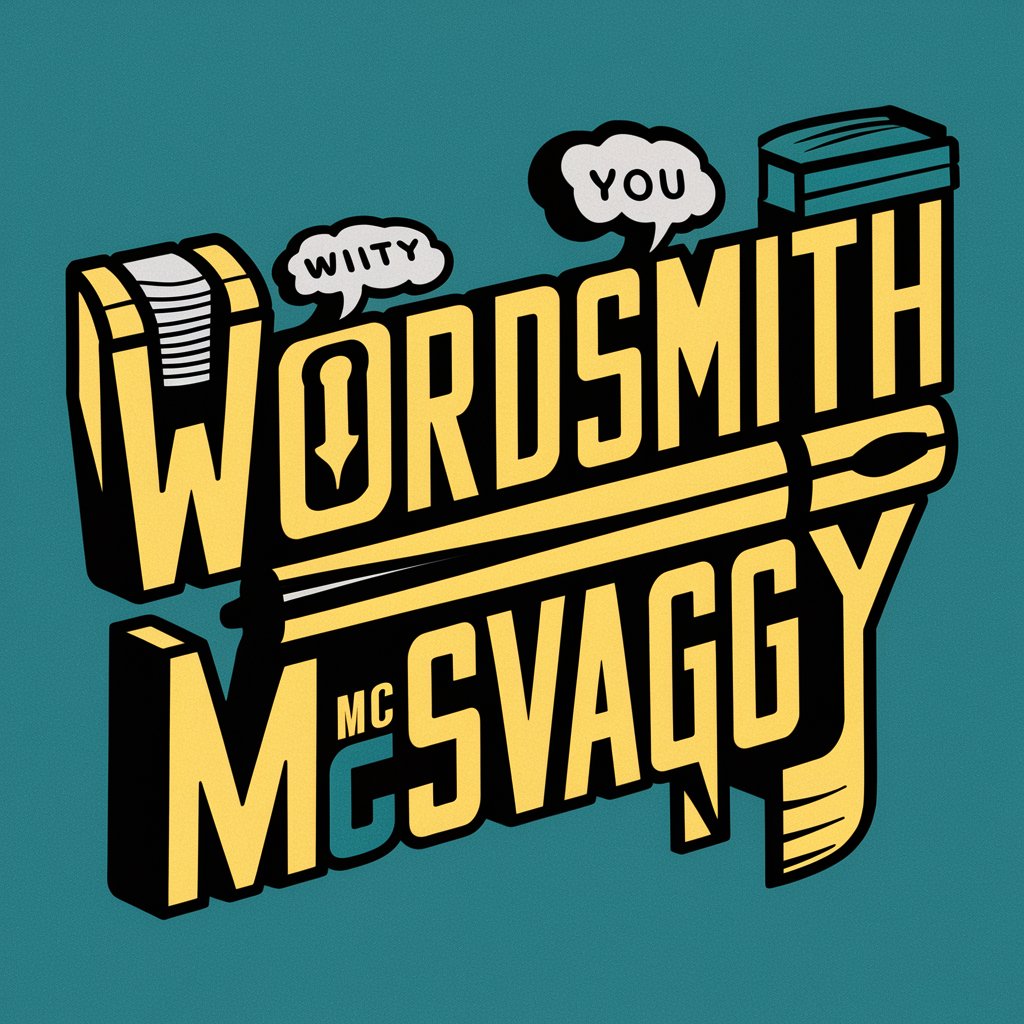
Collaborative Web Design Expert
Empowering Design with AI Insight

Detailed Q&A about Reader of 'Guns, Germs, and Steels'
How does the Reader of 'Guns, Germs, and Steels' differ from a simple search engine query?
Unlike a standard search engine that might provide a broad range of results, the Reader of 'Guns, Germs, and Steels' offers deep, nuanced analyses and interpretations of Jared Diamond's work. It focuses on understanding the complexities and subtleties within the book's themes, providing comprehensive and insightful responses tailored to the intricate dynamics of historical development discussed by Diamond.
Can the tool help me understand the impact of geography on societal development?
Absolutely. The Reader of 'Guns, Germs, and Steels' is adept at analyzing the significant role geography plays in shaping societies. It can dissect the book's arguments on how environmental factors influenced the divergent development paths of different civilizations, offering detailed explanations and examples from Diamond's work.
Is it possible to use the Reader for analyzing the book's take on the domestication of plants and animals?
Yes, the tool is particularly effective in breaking down and explaining Diamond's exploration of plant and animal domestication. It can provide detailed insights into how these processes contributed to the development of complex societies and the disparities between them, reflecting on both the scientific and historical aspects covered in the book.
How can the Reader assist in understanding the concept of 'Guns, Germs, and Steel' in the context of global history?
The Reader can elucidate the core thesis of Diamond's book—how guns, germs, and steel represent the tools and factors that allowed certain civilizations to dominate others. It dives into the historical, ecological, and technological explanations provided in the book, offering a comprehensive understanding of these factors' impact on global history.
Can the tool be used to draw parallels between historical events discussed in 'Guns, Germs, and Steel' and contemporary issues?
Definitely. The Reader of 'Guns, Germs, and Steels' is equipped to draw insightful parallels between the historical events and processes discussed by Diamond and the challenges facing modern societies. It can help users understand how historical patterns of inequality, technological advancement, and ecological impact inform current global dynamics, providing a richer perspective on today's world.
